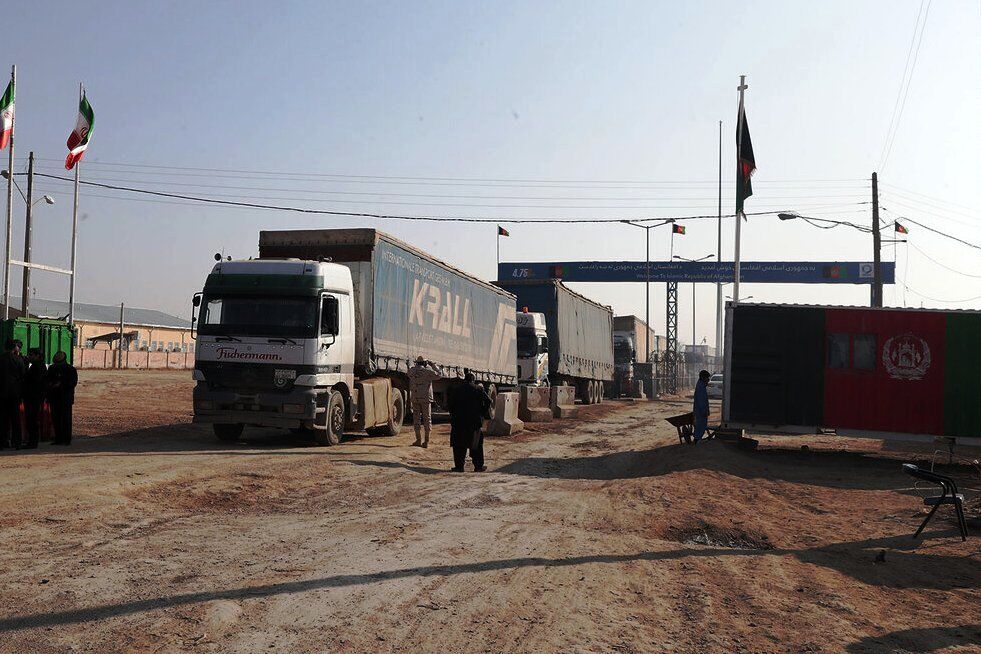Mohsen Roohisefat told the Strategic Council on Foreign Relations that economic ties between Iran and Afghanistan have grown in the past several years, adding that the economies of Iran and Afghanistan are complementary as Afghanistan is in need of Iranian export products and its transit channels and roads.
Referring to the value of commerce between Iran and Afghanistan, he said in recent years we have been witness to an increase in bilateral trade between the two countries.
“It exports between three to five billion dollars worth of goods to Afghanistan, the most important of which are food items, machinery and construction materials, engineering and telecommunication tools, transportation, home appliances, decoration and furniture and woodwork, carpets and flooring, medical tools and laboratory devices, textile fibers, clothing and skin and leather, cosmetics, carpets and handicrafts, machine-made carpets and jewelry.”
Roohisefat said such a variety of export goods prove that Afghanistan is in need of Iranian commodities, adding that “according to some figures, Iran’s exports to Afghanistan have more than doubled in the last five years, and according to the World Bank, Iran became Kabul’s largest trading partner in 2016. This trend has been increasing since then. The total value of Afghanistan’s imports last year was about seven billion dollars, 44 percent of which was Iranian goods”.
He added that “on the other hand, because Afghanistan is landlocked and has no access to the sea, it has two easy routes for Iran and Pakistan to transit its goods. Afghanistan’s difficult transit route is through the territories of the Central Asian republics and Russia, which is not affordable due to transportation costs for this country”.
Afghanistan’s attention to the capacities of the Chabahar Port
Asked about the status of economic relations between Tehran and Kabul considering the recent crises in Afghanistan, he said “since Afghanistan does not want to depend economically on only one path and wants to be open-handed in its policies, it is not interested in establishing foreign relations only through Pakistan. Therefore, in every period of governments in Afghanistan, the port of Chabahar has been considered as an alternative to the Karachi route”.
He considered as one of the most important joint economic plans of the two countries the Chabahar agreement and trilateral transit cooperation between Iran, India, and Afghanistan with the aim of linking the Central Asian states to international markets.
He added that even during the limited time the Taliban were in power, this tendency existed, and now Taliban spokesman Zabihollah Mojahed has stated that Chabahar is still important to them and that they are interested in using this track.
Re-opening of border markets
Referring to the border markets between Iran and Afghanistan, this former Iranian diplomat said in the past, it was not possible to benefit from border markets because the Taliban was based in part of our borders and there was insecurity in these areas.
“If the Taliban is in power, these cross-border markets are even more likely to be activated. Of course, there are already talks between Iranian and Afghan businessmen to resume the operation of these markets, and it seems that we will soon see the activities of businessmen and traders on both sides, as some of them have reopened after years.
He pointed to the impact of political inclinations of the Taliban on the future of economic relations with the neighboring countries, saying “certainly the impact of political developments in this country cannot be ignored, but so far these relations have been managed properly so that our interests have been secured and our export goods have easily entered the Afghan customs and the Taliban would also need to supply the goods required by their traders to prevent domestic dissent.”
According to him, recent political developments in the country have so far failed to have a fundamental negative impact on the economic relations between the two countries, although some mistrust has been created. The banking system has been affected and the absence of this banking system has had its negative consequences.
Competitions for political-economic presence in Afghanistan
This former diplomat of Iran referred to the present competitions for political and economic presence in Afghanistan, he said “we are witnessing the activities of some countries such as Qatar and Turkey to participate in the political and economic arenas of Afghanistan, each of which has challenges and limitations for this presence. Thus, although we may see impacts on the strength and weakness of economic relations between Tehran and Kabul, even in the worst of circumstances, Afghanistan cannot ignore its trade with Iran; because in any case, it needs Iranian goods and transit route”.
Roohisefat emphasized the necessity of more activity by the traders and businesspeople and the government’s attention to supporting them to make their presence stable in Afghanistan markets and said “if civil wars break out in Afghanistan, traders will be less able to reap these benefits due to insecurity, but otherwise, we will see the growth of relations. The new government will not accept the dictates and orders of another country and wants to maintain its independence and freedom of action”.
He continued that the chambers of commerce of the two countries should not wait for government support and developments.
“They must remain active and liaise with the unions of the other party as soon as the slightest opportunity arises. It is the natural right of our border cities to continue their activities before distant countries want to become active in this respect; they should not follow distant countries after they enter into Afghanistan’s market”.
Roohisefat added that the status of the future of Afghanistan is critical in terms of welfare because some former structures have been ruined and no new structure has been created.
“For this reason, Afghanistan is in severe economic hardship as far as banking and financial issues as well as the need for imported goods are concerned”.










0 Comments